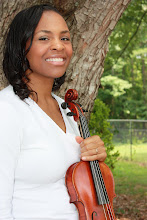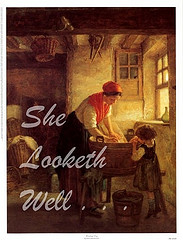But evangelicals should consider our own responsibility in teaching about human sexuality. Far too many evangelical pastors teach virtually nothing about a biblical understanding of human sexuality. This leaves much of the Bible unpreached and a congregation woefully untaught. It is not enough to believe the right things about what the Bible teaches concerning sex and sexuality. It is necessary to affirm the Bible's truthfulness and authority in every dimension it addresses, but this is not enough. Congregations are filled with people who need a word from the Lord on this matter that is so central to human identity and so ubiquitous in our culture.
Our pews are filled with people worried about their sexuality, wondering how to understand these things, struggling with same-sex attractions, tempted to stray from their marriages, enticed by internet pornography, and wondering how to bring their sexuality under submission to Christ.
The Religious Institute wants liberal preachers to talk more about sex. My guess is that they will. But what about evangelical pastors? Where is the teaching about God's gift of sexuality and the glory of God in marriage? Where is the teaching about the Bible's grace in telling us what is sin? Where is the acknowledgment of human brokenness? Where is the honesty about the struggle to bring all things under submission to Christ? Where is the preaching about how the Gospel lays claim on every dimension of our lives? Where is the teaching about how sex relates to sanctification and holiness?
Evangelical Christians will rightly reject just about everything found in this new report from the Religious Institute, but they should not avoid its urgency in calling pastors and Christian leaders to teach and preach about sex and sexuality. It is not enough to know the truth and believe the truth, we are called to preach and teach the whole counsel of God -- and that includes all that God has to say about sex.
Note that the declaration by the Religious Institute is toward liberal pastors to erase all lines of discrimination especially concerning the gay, lesbian, bi-sexual, transgender folks and heartily argues for their inclusion within the church rolls. But to what Mohler says here about more teaching from the pulpit regarding a Biblical perspective on human sexuality I say a hearty, "Amen!" It is important for people of all ages to hear what God says on this issue and more often that just once or twice a year. Discretion may and could be used for children under a certain age, but, as one report from Planned Parenthood has stated, extensive sexuality education should be mandatory for children beginning at age ten. Let's start there.
I will say that the elders at our church, CCMA, don't shy away from difficult issues or passages but present them faithfully and in it's proper context with a right application for our current congregation. It's important that, perhaps in the future, we should include sermons about human sexuality when similar issues of marriage, family, parenting, home education and abortion arise.












1 comment:
I agree with you that it is important to learn about human sexuality from a Biblical perspective, although, I think in a family integrated setting such as CCMA, it is a bit more difficult for the elders to do so from the pulpit. Many families (such as ours) desire for their childrens' first knowledge and facts about sexuality to be presented from the parents, in a loving, personal setting, where questions can be answered and embarrassment and confusion abated. I don't want them to half-hear something in church and then be too confused or embarrassed to discuss it later. I think "sex ed" is purely the responsibility of the parents, not the government, not the public schools, not peers, and not even the church.
I do agree, however, that in an adult-only, or at least young-adult and adult-only setting, it is appropriate to discuss such matters from a Biblical perspective.
Post a Comment